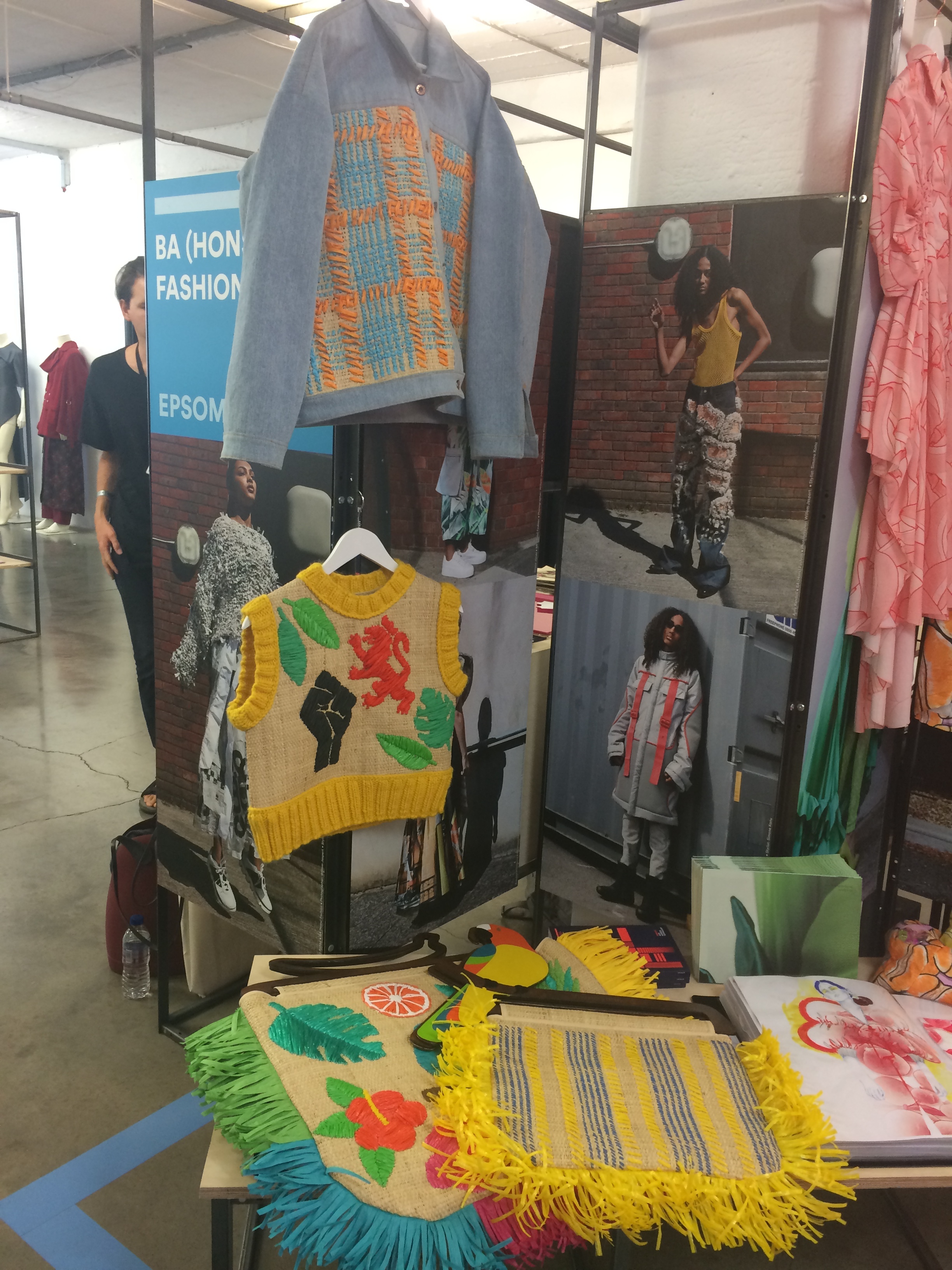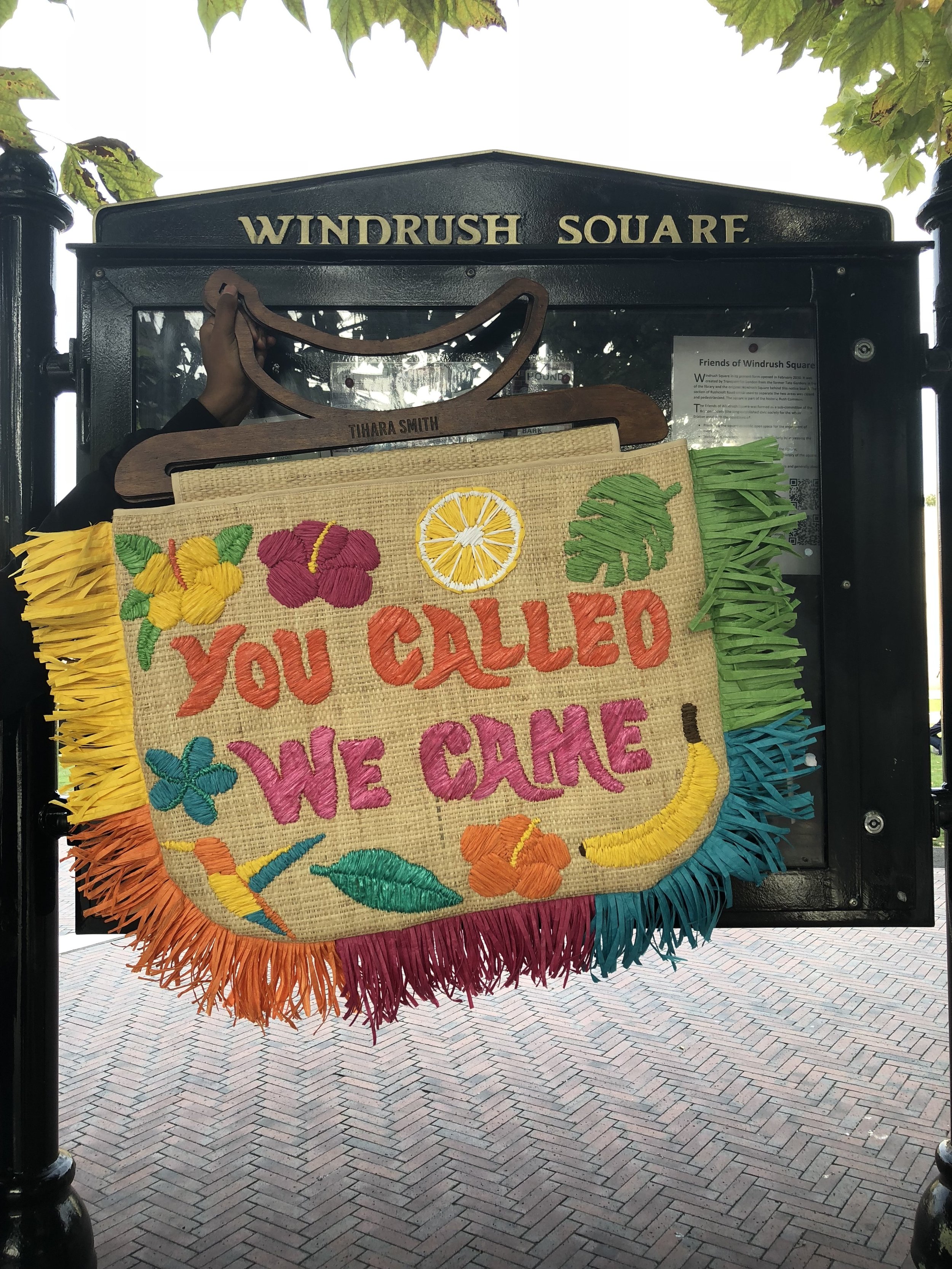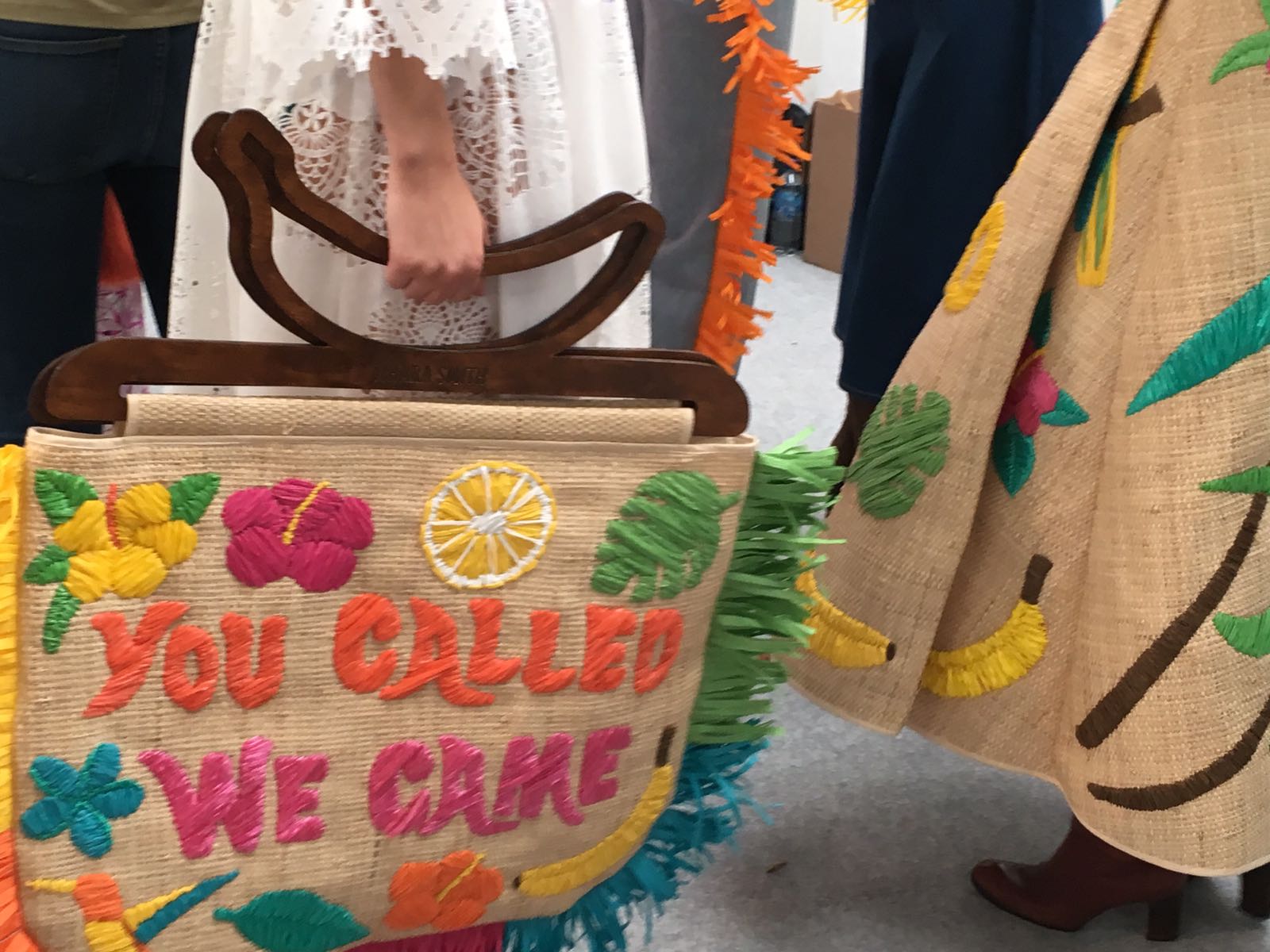From the inspiring figures creating spaces for BAME people to the young creatives paving the way for a more inclusive future, here at GFW, we are working to highlight and support the uplifting movements fuelling a demand for inclusivity in the fashion industry.
For the latest feature in celebration of Black History Month, we caught up with emerging designer Tihara Smith, to find out more about her Windrush inspired collection, and the influence of social history and political slogans in her work. With references to the movement of people from the Caribbean to the UK in the 1940’s, 50’s and 60’s, referred to as the ‘Windrush Generation’, Tihara celebrates her cultural history and identity through her creative work.
We caught up on the meaning behind ‘You Called, We Came’ emblazoned on her artistically embroidered bags, recognising the huge contribution the Windrush generation have made and continue to make the British society and the responsibility of decision makers in the industry to hire people from a wide variety of backgrounds.
What university did you attend and what did you learn there?
I studied BA Fashion at the University for the Creative Arts Epsom. Studying here, I had the opportunity not only to learn technical skills such as pattern cutting, sewing and textile development, but I also learned a lot about research, design and how to develop a concept. I also had an amazing cultural studies tutor and teaching librarians who helped me develop my research and analytical skills, which was very useful in researching both for my dissertation and my final collection.
Are there any political themes you explore in your work?
Although I didn't necessarily intend to explore political themes in my work, through my final collection I was able to explore some political themes. The idea for my final collection stemmed from me being inspired by my grandparent's story as members of the Windrush Generation, and just wanting to learn more about and celebrate my identity and culture as a Black-British person. But throughout the development of my collection, the story of the Windrush scandal was developing in the media, which led me to learn more about the Windrush and explore this is my work.
What inspired the slogans embroidered on your work?
The main slogan of my collection is on the large raffia bag stating 'You Called We Came'. The idea for this slogan was inspired by the fact that the Windrush Generation was 'called' by the British Government to come to the UK (the 'Mother Country') and help to rebuild after the war, and the Windrush Generation responded to their calls and 'came' to help. Yet, on their arrival, they were greeted with racism, discrimination, and certain groups of British people telling them to 'go back to where they came from', even though they were invited and were taught from a young age in the Caribbean that Britain was their 'Mother Country'. This slogan was intended to serve as a powerful statement to say that the Windrush Generation is a huge part of British culture and highlight the massive contribution that they have made to British society.
The second slogan from my collection was 'Black & British'. This slogan was similarly inspired by the belief that you can't be 'Black' and 'British' and again some British people believing that black people should go back to 'where they came from'. As a third generation Windrush descendent, my identity is rooted in the fact that I am both Caribbean and British, and I am proud of that!
What does Black History Month mean to you?
I think it's great to have a month when Black History is celebrated, but I wish that it had a bigger emphasis in Britain. Black History should be celebrated all year round and taught more in schools. For black people, Black History is part of our culture and part of who we are, so it's important that we see it as something that is ongoing and that we are constantly learning about our culture. But in general, I think we should have the opportunity to learn about all different cultures and their individual histories, and how they all relate. I think that would help us have more empathy and understanding for each other.
How did your grandfather inspire your collection?
My granddad was a big inspiration for my collection! He arrived in the UK from Saint Lucia in the 1950s, so was part of the Windrush generation. Growing up, I would always ask him questions about what life was like in the Caribbean growing up and what it was like in the UK when he arrived. In terms of my final collection, he showed me lots of photographs of himself, his family and friends so that I could see the fashions and get a sense of the feeling/energy of the time. He also shared his whole story with me so that I could get a real sense of what life was like for him in the UK. From presenting my collection at Graduate Fashion Week 2018, and highlighting my Granddad's story, he had the opportunity to share his story in the book 'Mother Country: Real Stories of the Windrush Children' by Charlie Brinkhurst-Cuff which was an amazing opportunity!
My final collection was really a family affair because I also interviewed my Nanny and her sister about their experiences coming to the UK from Jamaica. They also shared their family pictures, and my Nanny even helped me with some crochet in one of the looks in my collection!
How can everyone work together to make the industry a more celebratory and inclusive place?
I think a big part of it is what I mentioned in an earlier answer - everyone should take the time to learn about different cultures and the individual history of each culture. It would be great if this started in schools, so then young people could take this knowledge and understanding with them into their creative, professional and personal lives.
In the fashion industry, I think it should start in the head office, companies and brands should be more open to hiring people from different cultures and backgrounds and make it a priority. If there were more decision-makers in fashion businesses from different cultures and backgrounds (in design, marketing etc.) this would have a huge impact on the industry and making it a more inclusive space. It would also give the opportunity to explore new and different ideas and concepts in fashion, and be more representative of the world we live in. I definitely think this is something that is improving in fashion, but there's is still a long way to go.
Words and Interview by Annabel Waterhouse-Biggins







